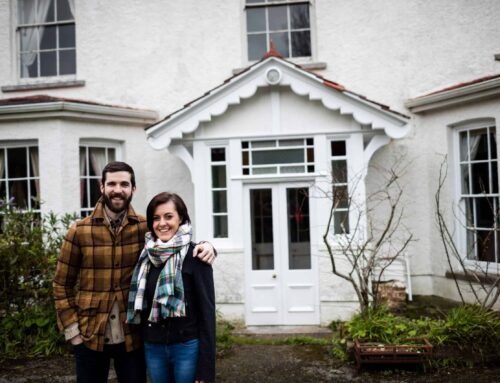The Best Time to Buy a Home in San Francisco: Your Ultimate Guide to Market Timing
Buying a home is one of the most significant decisions in anyone’s life. The decision becomes even more challenging when you’re navigating a competitive market like San Francisco. Whether you’re a first-time buyer or a seasoned investor, understanding when the best time to buy is can make a huge difference in both your experience and your financial outcome. The San Francisco real estate market has its own set of rhythms, and timing your purchase correctly can help you find the perfect home at the right price.
Understanding the San Francisco Real Estate Market Dynamics
San Francisco’s real estate market is unique. It has a fast pace, with shifting trends that can vary from year to year. Seasonal factors like the weather, economic conditions, interest rates, and even local job market trends all play a role in determining the best time to buy a home. While it’s important to be flexible, understanding the general patterns can give you an edge. Let’s explore the seasonal patterns in the market and how these can affect your home-buying experience.
1. San Francisco’s Seasonal Trends: When to Expect the Most Action
The San Francisco real estate market is known for its seasonal ebb and flow. Typically, the spring and summer months see the highest levels of activity. More homes come on the market, but so do more buyers. This increased competition can make it harder to secure a deal, and you might face bidding wars that push prices higher than you’d like.
If you’re hoping to have more choices and less competition, you might want to consider buying in the fall or winter. Inventory is typically lower during these months, but so is the competition. This quieter market can sometimes result in lower prices, which is especially helpful if you’re working with a tight budget. But remember, fewer homes on the market can also mean fewer options to choose from.
2. The Impact of Interest Rates on Timing
Interest rates are one of the most important factors that can influence the timing of your purchase. When mortgage rates are low, buying a home becomes more affordable because your monthly payments will be lower. On the other hand, when interest rates rise, the cost of borrowing increases, which can stretch your budget.
If you’re trying to time your purchase, pay close attention to interest rate trends. Locking in a low rate can save you thousands of dollars over the life of the loan. While it can be tricky to predict when rates will drop, working with a local expert who understands market conditions can help you spot the best time to buy.
3. Timing for First-Time Homebuyers
First-time buyers often have a lot of questions about the best time to buy. Timing can be especially crucial for those who are new to the process and may not be as familiar with the ins and outs of the market. In San Francisco, buying in the off-season (fall or winter) can be a smart move. During these months, you may face less competition, which gives you a better chance of negotiating a favorable price.
It’s also important to remember that many first-time homebuyer programs, like down payment assistance and special loan rates, are available year-round. So even if you decide to wait until the slower months, you won’t lose out on those benefits. Be sure to plan ahead by saving for your down payment, checking your credit, and getting pre-approved for a mortgage to make the process go smoothly.
4. The Role of Inventory in Determining the Right Time
The number of homes available at any given time directly impacts your ability to find a good deal. In the spring and summer, when inventory is high, there are more choices, but you’ll also face stiff competition. This can lead to higher prices and bidding wars that drive up the cost of homes.
During the winter months, inventory is generally lower, and fewer buyers are actively looking. As a result, prices tend to be more negotiable. Sellers who list during the off-season may be more motivated to make a deal, which could work to your advantage. If you’re flexible about your must-have features and can act quickly, winter may be a great time to snag a deal.
5. Market Conditions and Economic Factors
The broader economic climate can have a huge impact on the real estate market in San Francisco. Economic trends, such as job growth in the tech sector or shifts in housing affordability, can affect both the prices of homes and the amount of inventory available. In times of economic growth, more people are likely to buy homes, which can push up prices. Conversely, during a downturn, prices might dip, giving buyers more room to negotiate.
It’s crucial to stay informed about local economic conditions. San Francisco’s real estate market is heavily influenced by the health of the tech industry, so paying attention to job growth, stock market trends, and broader economic signals can help you make a more informed decision about when to buy.
6. Understanding Local Real Estate Cycles
San Francisco has its own real estate cycle that affects both pricing and buyer opportunities. Typically, sellers are more likely to list their homes during the spring and summer months. This means there’s a greater selection of homes, but more competition as well.
On the flip side, in the fall and winter, fewer homes are listed, but sellers who do put their homes on the market may be more willing to negotiate. This can provide an opportunity for buyers to secure a better deal without as much competition. Understanding this cycle can help you pinpoint the best time to make your move.
7. Personal Timing: Aligning Your Home Search with Your Life
While market timing is essential, personal circumstances are just as important when it comes to buying a home. Are you planning a job change, expecting a growing family, or relocating for a new opportunity? Your personal situation should be a key factor in determining when to buy.
Buying a home is a big financial commitment, and aligning your purchase with both your financial readiness and life goals will help ensure a smoother home-buying experience. Whether you’re buying your first home or investing in a new property, being prepared is crucial. If you’re unsure, it may help to create a timeline for your purchase and work with a local expert to help guide you through the process.
Contact Us Today to Find the Best Deals on SF Homes This Season!
Now that you have a better understanding of the factors that influence the San Francisco real estate market, it’s time to take action. Whether you’re looking to buy during a busy season or the slower months, timing your purchase to match your goals is crucial. Contact us today for personalized insights on the best deals in San Francisco’s real estate market and let us help you make the most of this exciting journey.



